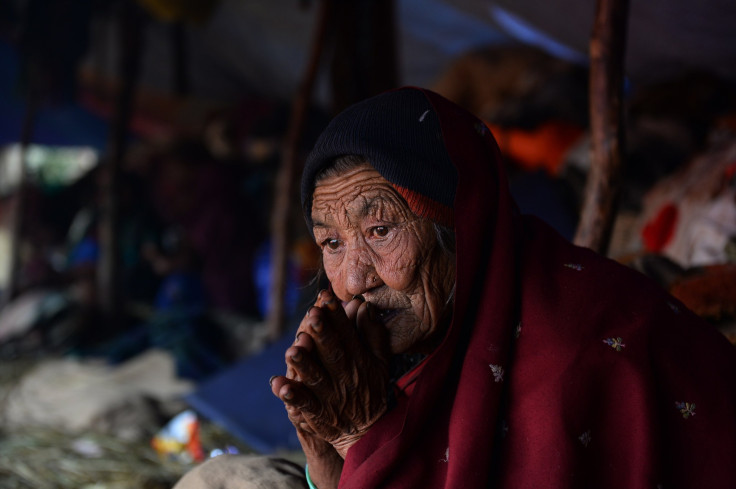Nepal Earthquake: More Than 70 Aftershocks Since First Tremor, Quakes Could Last For ‘Months Or Years’

The dust has begun to settle after Saturday's massive earthquake and many Nepali are trying to find some normalcy amid the ruins in the country’s capital city, Kathmandu. But Nepal’s nightmare might not be over. More than 70 aftershocks of magnitude-3.2 or greater have rattled Nepal since the initial quake, according to the Indian Meteorological Department in New Delhi, each a reminder that just below the surface of the earth is a beast that just won’t sleep.
"We can expect aftershocks over the next few weeks, or months, or even years," J.L. Gautam, the director of seismology at the department, told the Associated Press. "These aftershocks are quite normal after a powerful earthquake of such magnitude."
Many Nepali have spent every night since the earthquake sleeping outside in tents, fearing that at any time their houses and apartments could crumble during an aftershock. Tens of thousands of other residents of Kathmandu have left the city on buses to head for their rural hometowns.
The devastating magnitude-7.8 earthquake that rocked the region over the weekend has affected more than 8 million people across Nepal. More than 4,800 people are confirmed dead, a number that’s expected to climb as rescue workers continue to search through the rubble after the quake brought homes and temples crashing down. More than 9,200 others were injured in the quake. It was the country’s deadliest natural disaster in more than eight decades.
"Many people are crying, sharing their hardships," one survivor of the earthquake told CNN. International aid groups have been deployed to the country to provide much-needed emergency supplies, including food, water, blankets and medicine. At least 16 countries have stepped in to help with the recovery effort.
© Copyright IBTimes 2024. All rights reserved.






















